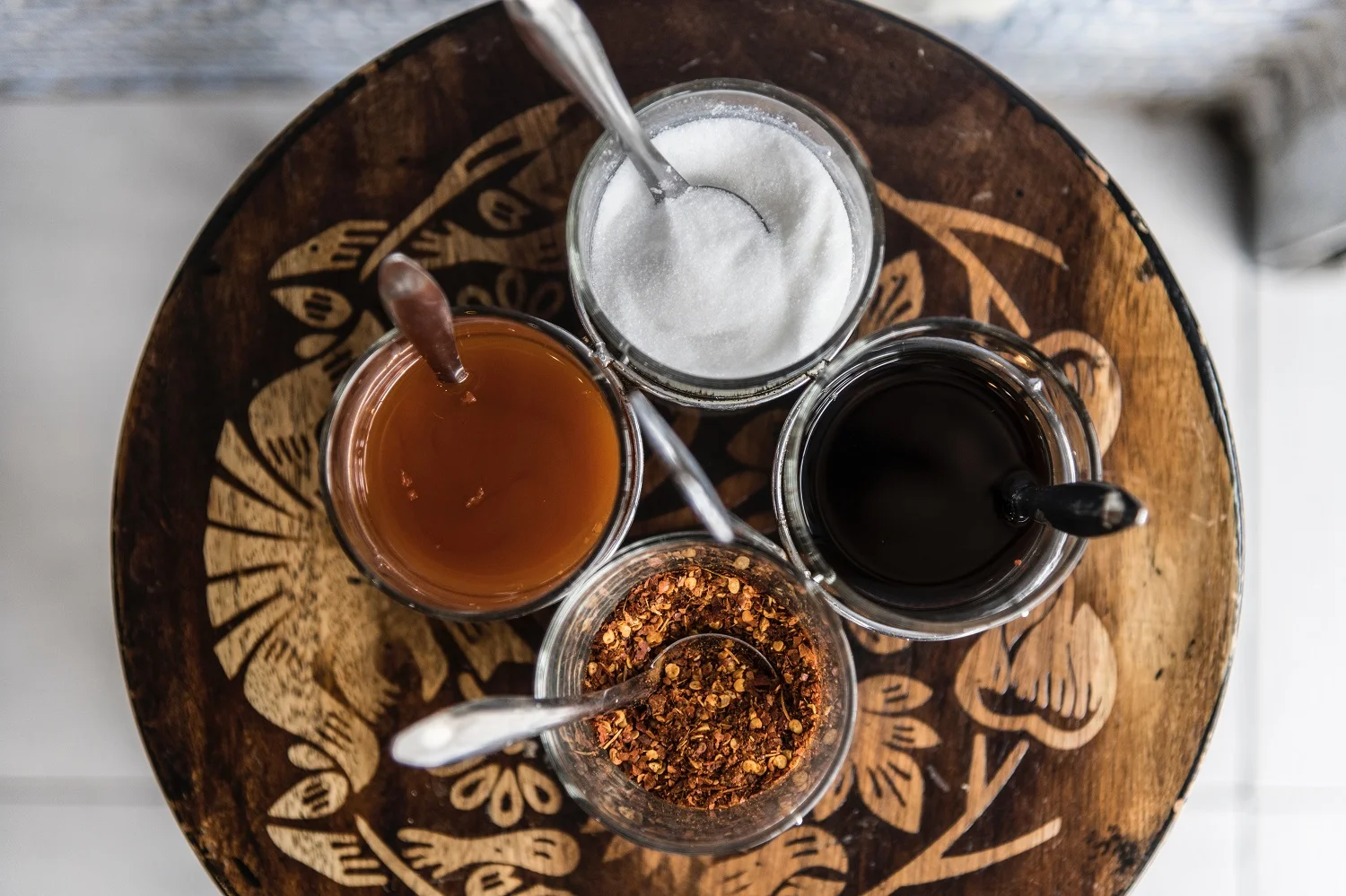Are Sugar Substitutes a Sweet Option?
Are sugar substitutes a sweet option?
Regular Midlife Menu followers will know I’m not a great fan of sugar. It’s addictive, causes weight gain and plays havoc with your midlife health by spiking your blood sugar levels.
But today I’m making a slight exception because if there’s one ingredient worse than sugar for midlife health ... it’s those sugar substitutes … artificial sweeteners.
Yes, sweeteners have fewer calories than sugar. Perhaps this is why they are still hugely popular, especially for those of us who grew up in the 70s and 80s with the message that minimal calories by whatever quick fix equals better health.
I get it. If there’s an option which keeps your sweet tooth happy then why wouldn’t you use it? Surely sweet taste with less calories is a win-win? After all, that is avoiding sugar isn’t it?
But think about this for a minute. The clue is in the name - artificial means just that. Sweeteners like saccharin and sucralose are not natural products that our bodies will recognise and welcome. They are artificially created products which are really difficult for our bodies to digest.
Basically, artificial sweeteners are a chemistry experiment.
At least our bodies recognise sugar and how to process it. Ok, the way it’s processed isn’t great but it’s not forcing your body to work really hard to metabolise the chemicals. And for that reason it gets a (reluctant) thumbs up from me over sweeteners.
Types of artificial sweeteners
Sugar substitutes fall into several categories, but what they all have in common is that they have a sweet taste and fewer calories than plain sugar.
Artificial sweeteners are synthetic chemicals where a tiny bit tastes very sweet.
They include:
Saccharin (Sweet & Low),
Acesulfame potassium
Aspartame (Equal & NutraSweet), and
Sucralose (Splenda).
But not all sweeteners are created equal.
Arguably, some are slightly better options than others because they are more natural based. Xylitol, for example, doesn’t spike your blood sugar levels although it will keep you used to sweetness. Another one to watch out for is Stevia - which tends to be quite commercial. If you pick up a sweetener sachet in a coffee shop you might see that name.
If I drew up a league table of sweetness I’d put the list above (saccharin and friends) in the worst camp, sugar as OK if you must and Xylitol and Stevia get a plus point because they don’t affect blood sugar levels.
Health effects of sugar substitutes
Negative health effects from artificial sweeteners are cited all over the place, and while many studies show effects, others don't.
Cancer? Maybe yes, maybe no. Heart disease? Maybe yes, maybe no.
Not to mention that much of the research has been on animals, which may or may not translate to people. And do you know what they feed mice when they want to get them nice and fat for studies? Yes - artificial sweeteners!
I did want to point out one ironic thing, to do with artificial sweeteners and weight.
One study found that people who tend to drink diet drinks have double the risk of gaining weight than those who didn't.
Another study has shown an increased risk for metabolic syndrome and diabetes for those who consume diet drinks every day.
Clearly, there’s a disconnect between believing that artificial sweeteners don’t make us fat and sugar does when actually the truth is different.
How do artificial sweeteners affect our bodies?
Good question!
There are so many ideas out there to try to explain it, but the reality is we don’t know for sure; plus, it might play out differently in different people.
Is it because people feel that they can eat cake because they’ve switched to diet drinks?
Perhaps it’s because the sweeteners change the taste preferences so that fruit starts to taste worse, and veggies taste terrible?
Maybe artificial sweeteners increase our cravings for more (real) sweets?
Could it be that the sweet taste of these sweeteners signals to our body to release insulin to lower blood sugar; but, because we didn’t actually ingest sugar, our blood sugar levels get too low, to the point where we get sugar cravings?
Some even say (and at least one animal study suggests) that saccharin may inspire addictive tendencies toward it.
Maybe there is even a more complex response that involves our gut microbes and how they help to regulate our blood sugar levels.
Get real with sugar substitutes!
But the bottom line is this - sweeteners - whether they spike your blood sugar or not - still keep you trapped in addiction to sugar. They don’t train your taste buds to like less sugar.
So with my nutrition hat on I’m going to say: ditch the sweeteners!
Think instead about ways of reducing sugar overall rather than trying to simply replace it with a similar taste which is not going to do you any long term good.
I won’t lie - cutting back on sugar is a commitment. It takes motivation and the first time you try a drink with less sugar than you are used to, it will taste horrible.
If the thought of going sugar free is a step too far just now, at least go for more natural sweeteners such as Xylitol and Stevia which will avoid those sugar spikes. I could suggest using more natural alternatives, like black treacle or maple syrup because they have more trace minerals than sugar. But, really, we’re splitting hairs. Being honest, the best thing to do is to gradually train your taste buds not to want the sugary taste.
Three Ways to Go Sugar Free This Week ... Without Going Artificial
So, if I’ve convinced you that it’s time to cut out artificial sweeteners for good here’s three ways to try it out this week.
Switch your sweetener from the more chemical ones like Aspartame to Xylitol or Stevia.
Start reducing your sugar intake very gradually and remember it takes time for your tastebuds to adjust (it can take up to 8 weeks).
See cutting down as part of a plan to reduce your sugar intake as a whole. I won’t often say this but it’s better to have a small amount of sugar than an artificial sweetener.
You’re Not Alone!
If you don’t know where to start with a sugar slow-down then why have a go at my 5 day sugar-free challenge? It’s real life midlife - nothing impossible, just a sensible way of cutting back without going cold turkey.
Content Disclaimer
The information contained above is provided for information purposes only. The contents of this blog are not intended to amount to advice and you should not rely on any of the contents of this blog. Professional advice should be obtained before taking or refraining from taking any action as a result of the contents of this blog. Midlife Menu Ltd disclaims all liability and responsibility arising from any reliance placed on any of the contents of this blog.





Overeating during lockdown can be triggered by a rollercoaster of emotions or stress from homeschooling, looking after oldens or just trying to cope with working from home. Cravings, snacking and home baking can make overeating during lockdown very easy. So here's what to do to tackle the lockdown overeating. www.midlifemenu.com/blog/overeating-lockdown